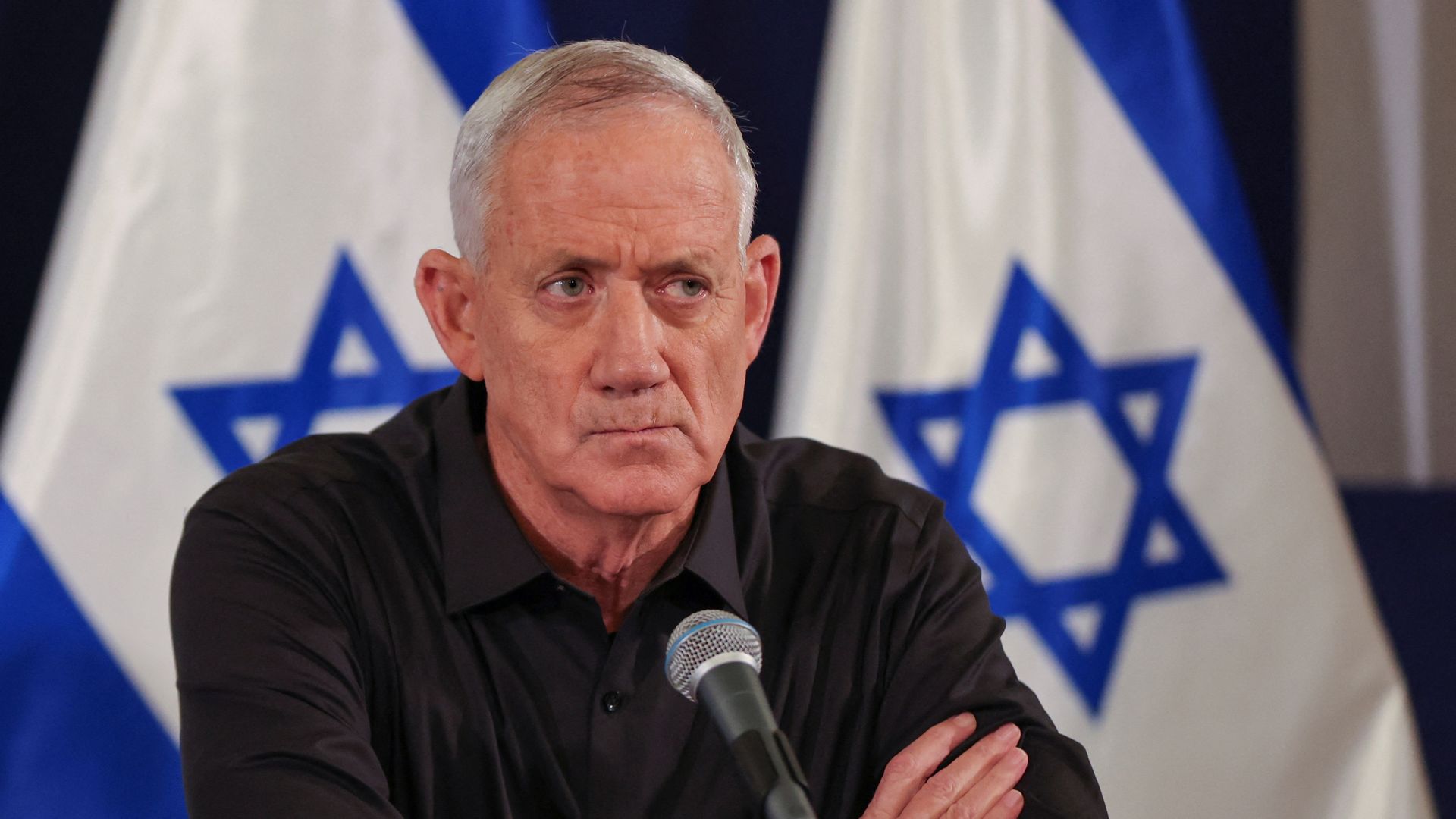A member of Israel’s three-man war cabinet has threatened to resign from the government if it does not adopt a new plan for the war in Gaza.
The move by Benny Gantz escalates a divide within Israel’s leadership more than seven months into the war.
Israel is yet to accomplish its stated goals of dismantling Hamas and returning scores of hostages abducted in the attack on 7 October.
Mr Gantz, a long-time political rival of Prime Minister Benjamin Netanyahu, has now set out a six-point plan that includes the return of hostages, ending Hamas’s rule, demilitarising the strip and establishing an international administration of civilian affairs.
Mr Gantz’s plan also supports efforts to normalise relations with Saudi Arabia.
He said if it is not adopted by 8 June he will quit the government.
His departure would leave Mr Netanyahu even more beholden to far-right allies who have taken a hardline on negotiations over a ceasefire and hostage release, and who believe Israel should occupy Gaza and rebuild Jewish settlements there.
Ukraine war latest: Russian forces take control of village in Kharkiv region – defence ministry
Ron Benjamin: Body of Israeli hostage kidnapped during cycling trip on 7 October found in Gaza, IDF says
Update given on health condition of Slovakia’s PM – as suspect in court over attempted assassination
“If you choose the path of fanatics and lead the entire nation to the abyss – we will be forced to quit the government,” Mr Gantz has said.
The centrist politician joined Mr Netanyahu’s coalition and the war cabinet in the early days of the conflict.
Mr Gantz’s six-point plans comes days after Israeli Defense Minister Yoav Gallant, the third member of the war cabinet, openly said he has repeatedly pleaded with the other two members to decide on a postwar vision for Gaza.
Mr Gallant said this should involve the creation of a new Palestinian civilian leadership.
The developments come as Mr Netanyahu is under growing pressure on multiple fronts.
Hardliners in his government want the military offensive on Gaza’s southernmost city of Rafah to press ahead with the goal of crushing Hamas.
However, Israel’s most important ally, the US, and others have warned against the offensive on a city where more than half of Gaza’s population of 2.3 million had sheltered.
Hundreds of thousands have now fled Rafah and Israel’s allies have threatened to scale back support over the humanitarian crisis.
US National Security Adviser Jake Sullivan will be in Saudi Arabia and Israel this weekend to discuss the war and is scheduled on Sunday to meet with Mr Netanyahu, who has declared that Israel would “stand alone” if needed.
Read more:
Girl with ultra-rare disease denied escape from Gaza
Starving Gaza children dying the ‘size of a skeleton’
Israeli fighter jet hits West Bank in deadly strike
Meanwhile, many Israelis are accusing Mr Netanyahu of putting political interests ahead of all else. They also want to agree a deal to free the hostages and stop the fighting.
There was fresh frustration Friday when the military said its troops in Gaza found the bodies of three hostages killed by Hamas in the 7 October attack.
The discovery of the body of a fourth hostage was announced Saturday.
The latest talks in pursuit of a ceasefire, mediated by Qatar, the United States and Egypt, have brought little progression.
A vision for Gaza beyond the war is also uncertain.
The conflict started after Hamas militants carried out an attack on Israel on 7 October – killing 1,200 people and capturing around 250 hostages.
Israel says around 100 hostages are still captive in Gaza, along with the bodies of around 30 more.
The Israeli offensive has killed more than 35,000 Palestinians in Gaza, local health officials say, while hundreds more have been killed in the occupied West Bank.










